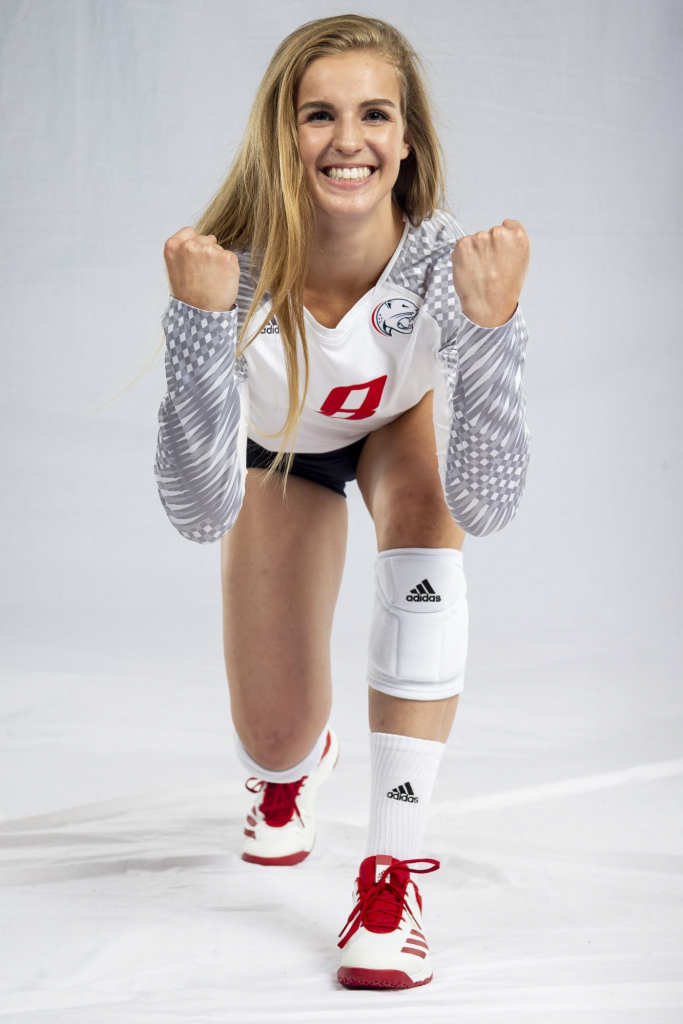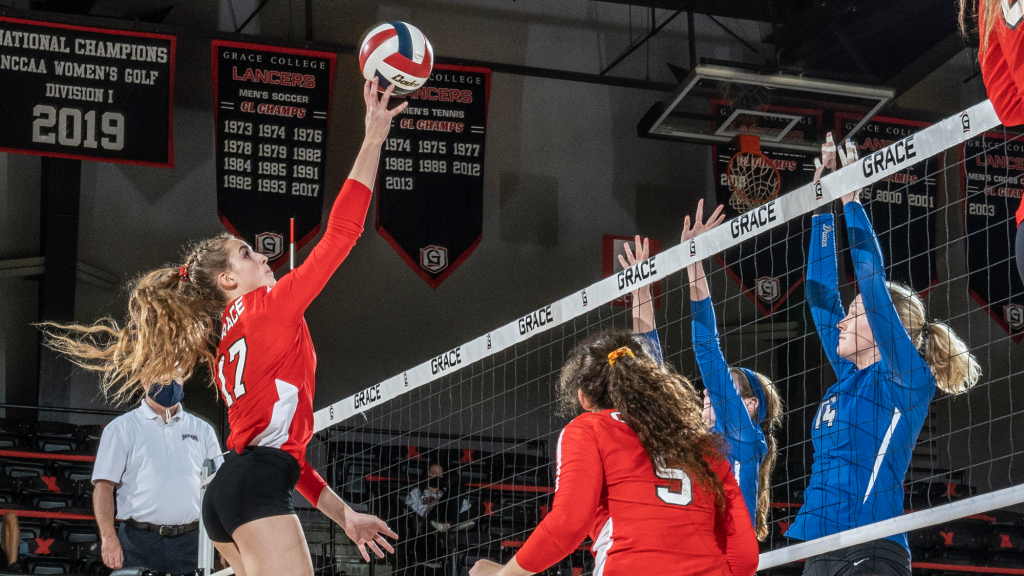The Chance of a Lifetime
Two weeks before her first semester of college, Colbert received a phone call from her future coach. When she answered the phone, her coach explained that she had stepped down from her position at the University of West Alabama and had taken a head coaching position at the University of South Alabama — a Division 1 School.
She was offering Colbert a four-year, full-ride scholarship to come play for her.
“I knew right away that I wanted to go,” said Colbert. (As a 5’8” hitter, she knew that this was a once-in-a-lifetime opportunity, as most Division 1 hitters are at least 6 feet tall.) “I told her, ‘If we can get me into the program in time, I want to play for you.’”
Two weeks later, Colbert arrived at the University of South Alabama for her first day of class having never stepped foot on the campus, knowing very little about the school, and not recognizing a single face on campus.
Colbert’s college journey had been anything but traditional. All she knew for certain was that she wanted to play Division 1 volleyball.
Culture Changer
The coaching staff at the university brought Colbert in as a “culture changer.” A hard-working player with strong values and a tenacious spirit, Colbert embodied exactly what they wanted their program to be about. In fact, Colbert’s face was plastered on the main wall of the volleyball office. She was, quite literally, the face of the program. Even though she was still technically a senior in high school by age, the coaches had high expectations for her.
“I was the drill sergeant who had to keep everyone in line,” Colbert recalled. “I knew it was going to be a challenge because the morals and values of my teammates were far different from mine, and I couldn’t micromanage their social lives.”
That spring semester proved to be very challenging for Colbert in several ways.
“I had never even scratched the surface of the physicality of that level of play,” she said. “And moving more than 650 miles away from home was difficult. I kept telling myself that God had a plan. I knew that He had sent me there for some reason.”
That summer, she trained in Mobile and worked at camps with her teammates. As she approached the fall season, Colbert felt like she was beginning to see progress with her teammates. But the further into the fall she got, the less she recognized the girl in the mirror.
“I knew I was developing as a person, but not in a way that was fruitful in my walk with God,” confessed Colbert. “I was hyper-focused on volleyball and I lost sight of balance in life. I was not a joyous person. I could not think straight, and if I missed a workout, I was totally rattled.”
She wasn’t eating. She wasn’t sleeping. She didn’t even want to see her family. Her life was so consumed with volleyball, she did not have the time, energy, or desire for anything else.
“I physically, mentally, and emotionally went through some of the hardest things during that season,” recalled Colbert. “I was in a wrestling match with myself. Was it all worth it? I had worked so hard to be there, and it was everything that I wanted on paper. I kept asking myself: Am I being a wimp if I quit? Am I letting people down?”
Colbert went home for Christmas break and cried every single day. She absolutely dreaded going back to school. Somehow, she mustered up the strength to return, but at the very first team meeting, Colbert reached her breaking point. The cycle she had experienced in the fall was never going to end. She knew that she had to be done.
“It was a lot to walk away from, and it took me getting to the bottom of the bottom, and being broken spiritually, emotionally, and physically. I was literally at my wit’s end. To me, everything was just falling apart.”






